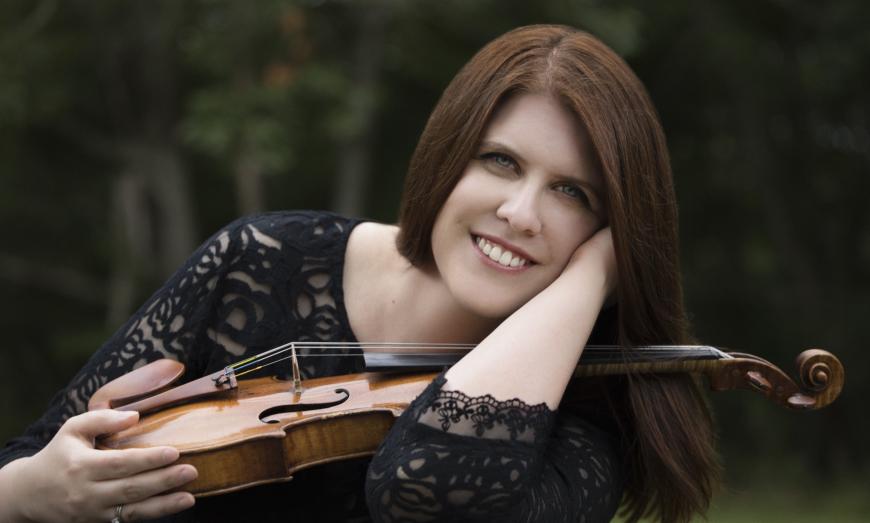
Erin Keefe is an only child. She is also a Taurus. As such, she has never been shy about expressing her opinion.
But having served as concertmaster of the Minnesota Orchestra for a dozen years, the acclaimed violinist has learned to be diplomatic. Consider this candid comment she gave during a lengthy interview about her life and work.
“There have been a lot of [personnel] changes over the years,” she said of the orchestra, “but the section leaders really play well together — because, or in spite of, what’s on the podium.”
“Because, or in spite of.” The phrase makes her point — not all conductors are created equal — while staying fundamentally upbeat.
“The playing is the easy part,” she said of her work as concertmaster. “Figuring out what to say, what not to say, and when to say it — that’s a whole different aspect of the job that I hadn’t given any thought to before I had it. That psychological component keeps it interesting.”
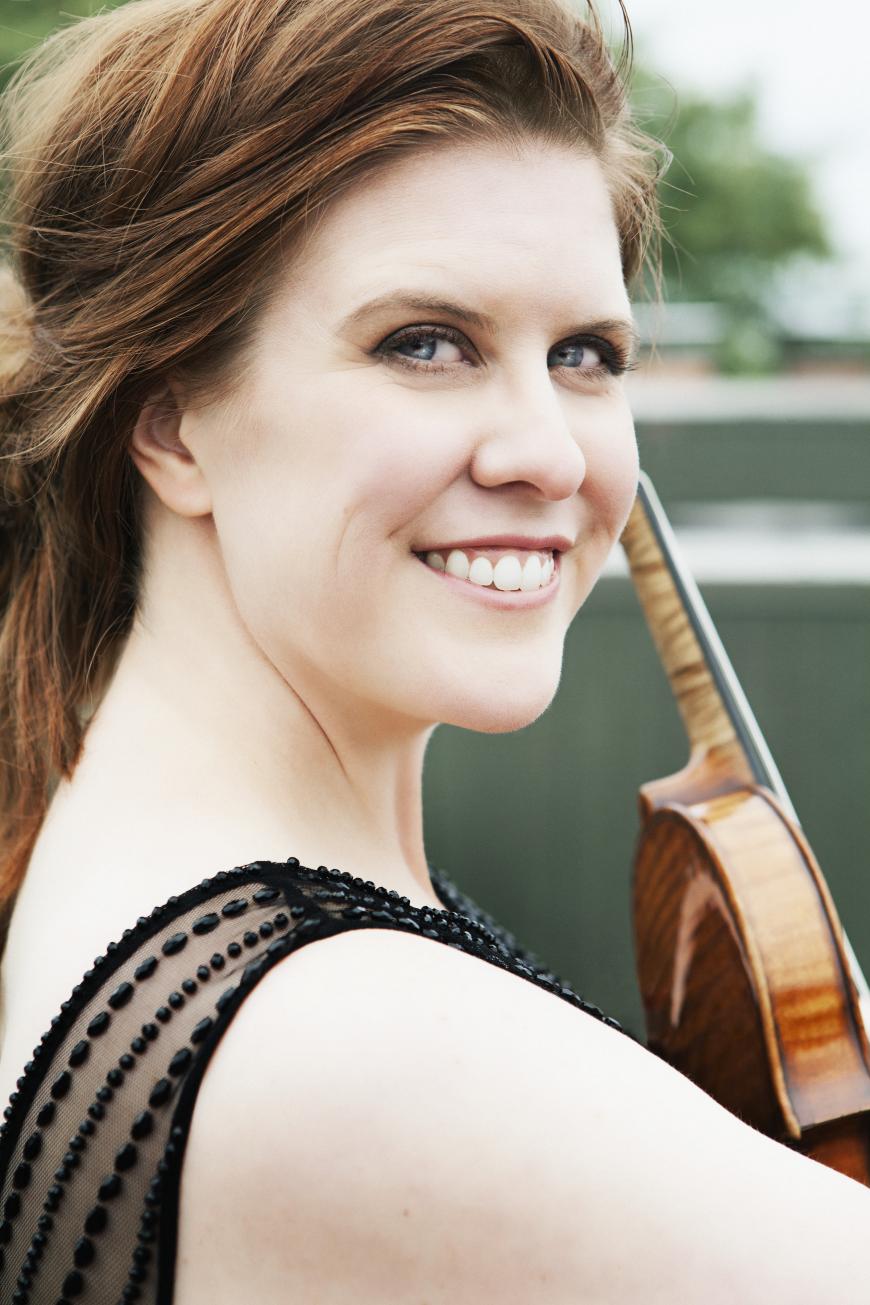
Keefe is spending the last week of July in San Diego, performing at La Jolla Music Society’s annual SummerFest. In an interview from the Minneapolis home she shares with her husband, conductor Osmo Vänskä, the violinist described her “nomadic life” and extremely busy career, which includes her orchestra job, a full schedule of chamber music performances, and a faculty appointment at the Curtis Institute of Music. This conversation has been edited for clarity and concision.
How do you divide your time between serving as concertmaster of the Minnesota Orchestra and playing chamber music? Is it 50-50?
I do about half of the year with the orchestra — a 26-week season. Then I do chamber music and teaching and solo stuff — and try to take a few weeks off. It’s a little crazy. I got a new teaching job last year, at Curtis, which is where I got my undergraduate degree. So it’s pretty exciting. It’s nice to have a hand in orchestral playing, chamber playing, and teaching. If I could only do one or two of them, I’d feel I was missing out on something. Having this diversity is important to keep me searching and learning and excited.
Does being a chamber player make you a better orchestral musician? Does anything about playing in an orchestra make you a better chamber musician?
Yes and yes! I believe playing chamber music is instrumental to anything you do in music, including playing solo recitals or concertos. The ear you develop by playing different pieces with different groups is the best musical training. My first real orchestral job was in Minnesota, and I think that’s the reason they took a chance on me in spite of the fact I didn’t have much orchestral experience. I’m used to leading and following simultaneously.
Now that I have been in the orchestra for 12 or 13 years, I think the skills I have learned absolutely translate to being a better chamber musician. The orchestral training teaches you to be always “on” — listening to other people and analyzing things in the moment. That’s been a nice addition to my skill set.
What exactly is the concertmaster’s job? I imagine it changes from person to person and from place to place.
Yes, and even from week to week. Basically, the role of the concertmaster is to be a facilitator. If you have a conductor who is older, more experienced, and really knows what they want, my job is less difficult. If the conductor is less experienced or less confident, I ask more questions and give more feedback to the section than I do normally. So week to week, it can be a completely different job.
I’m used to coming in [to a rehearsal] with a point of view, but a flexible one. I don’t get to run the show. But a fair amount of the time, I have a lot of influence over what’s happening, at least in my section.
It sounds like you needed to develop a sense of how best to frame a comment or request and find an approach people respond to.
Exactly. How to word things in a succinct way so you get what you want but without being bossy or negative. Now that I’m leading string sectionals at Curtis, I’m very mindful to tell the kids who are serving as principals to think about these things — because I wasn’t aware of them before I got the job.
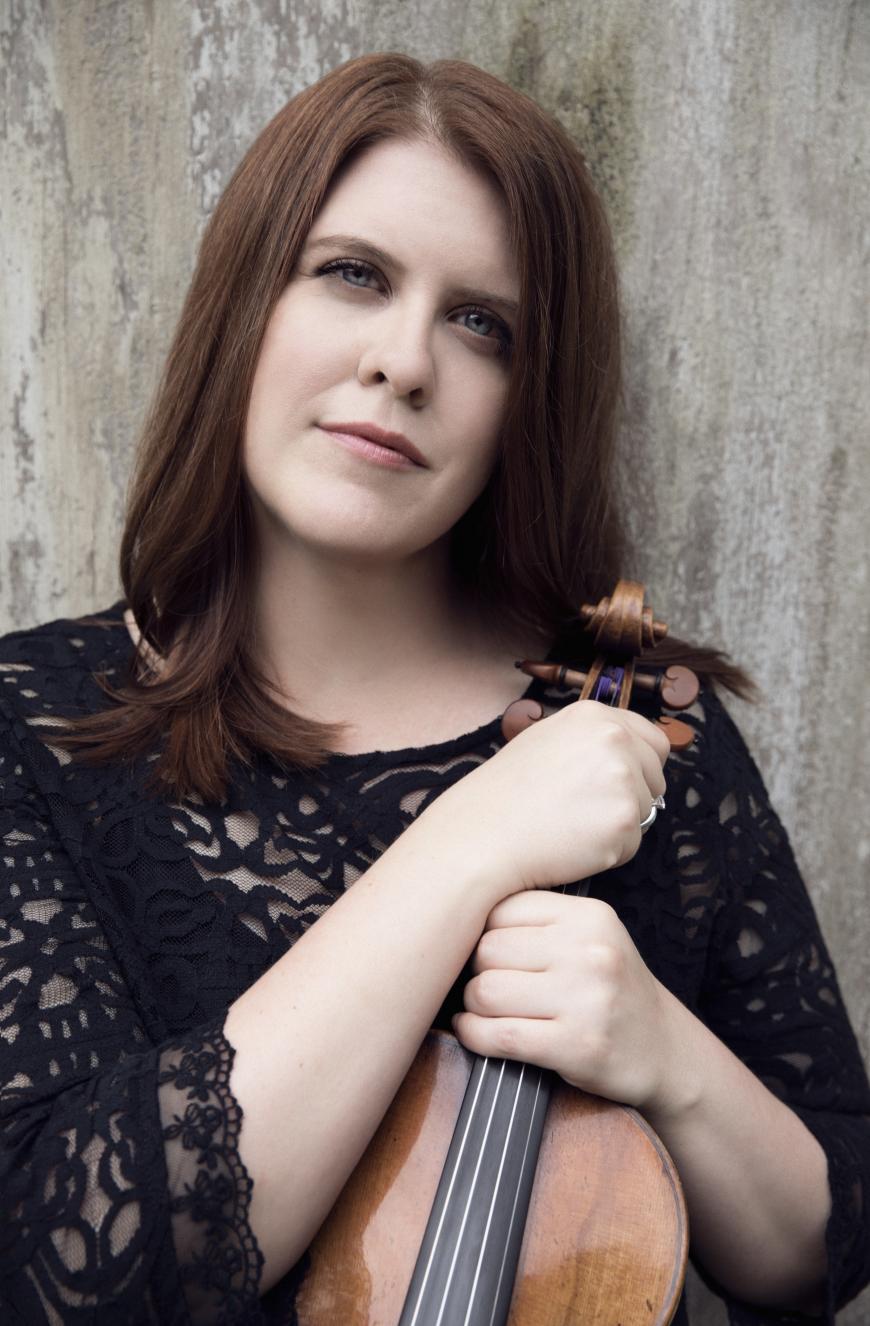
So you have dealt with less experienced conductors who don’t communicate all that well with the players?
Yes, although there are also plenty of older, more experienced conductors [whose style requires] me to be more involved. My job is basically to get the orchestra to sound as good as it can. If a conductor is a string player, or at least knows a lot about how string players work, it’s less difficult. But some conductors know what they want but don’t know how to get it. So I sometimes translate their request into string terms or bow terms.
Every conductor is completely different. Sometimes you realize a conductor doesn’t want that many questions, so you just leave it. Others are totally open to feedback. It really depends on their personalities, their self-confidence level, their level of comfort with the orchestra.
You played this translator role with your husband, Osmo Vänskä, for a number of years. [Vänskä served as music director of the Minnesota Orchestra from 2003–2022.] Did that complicate your job?
That’s how we met — on the job. When he first got here, I didn’t like him. I thought he was angry and very serious, which he was.
I think [our personal relationship] was beneficial to the orchestra in the end. I could be unabashedly honest with the music director and give him feedback on a regular basis. Luckily, Osmo is incredibly open. We’ve never gotten into a fight over music. He tells people that he respects me so much as a musician that it would be pretty dumb not to listen to what I have to say. We don’t always agree on things, but I have learned over the years when and how to say things to him. When we have guest conductors, I bite my tongue more.
Your story sounds like a highbrow rom-com.
Totally! There’s a happy ending.
Let’s talk about La Jolla SummerFest. How long have you been participating?
This will be my third festival. I started going when Inon [Barnatan] took over [as SummerFest’s music director]. He and I have been friends for many years.
I love going to La Jolla. The Conrad is such an amazing venue, and Inon is such an interesting programmer. On the second night, July 29, the program has over a dozen pieces. The theme is “morning, summer, and evening,” and it’s a fascinating combination of pieces. We did something similar my first summer there: One program had about 20 pieces. It was a seamless tying together of music I would never have thought to put together. So being there is educational in a way; you’ll hear programs you will never hear in other places.
You’ll be part of the ensemble playing Arnold Schoenberg’s reduction of Gustav Mahler’s Das Lied von der Erde on July 30. Are you familiar with that rarity?
I actually have done it twice, the last time 12 years ago. But I’ve never performed [Mahler’s] original [orchestral] version. These Schoenberg transcriptions are pretty wonderful. Playing Mahler is one thing I missed when I was strictly a chamber musician. [The Minnesota Orchestra] just finished recording all the Mahler symphonies, but it didn’t do Das Lied. Sasha Cooke is an amazing singer, so I’m looking forward to hearing her sing it [at La Jolla].
Let’s talk a bit about your background. You are originally from Massachusetts, where your parents were both academics.
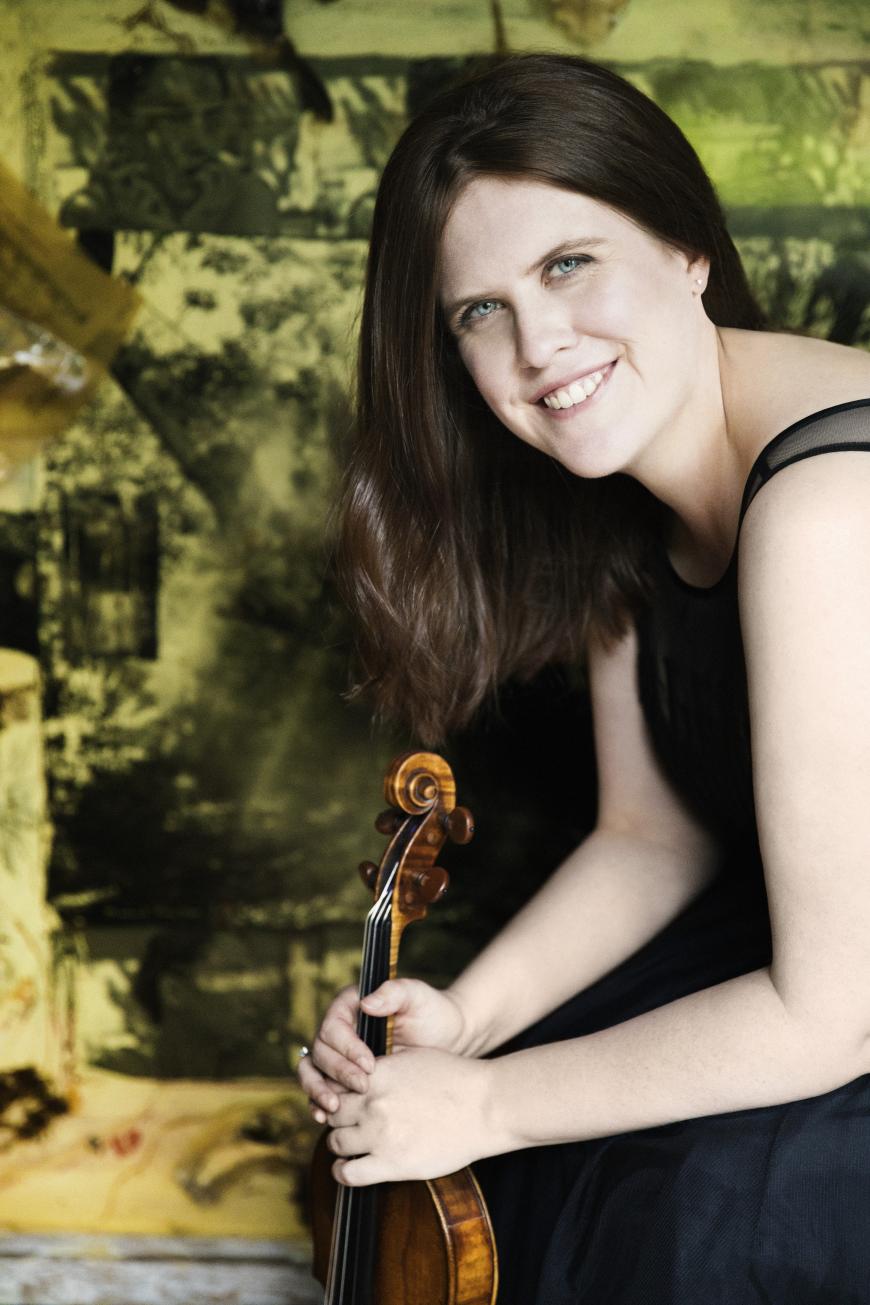
That’s right. My father wasn’t a musician — I think he played trumpet, badly, in high school—but he loved music. We always had classical and jazz on in the house.
You told the Minneapolis Star Tribune that your family tried to buy your neighbor’s piano, with the idea of you learning to play it, but they couldn’t get it through the door.
We lived in a really old house with a very small front entry. The angles of the entryway wouldn’t allow the piano into any room. So I started studying the violin. I was about 8. Within a year, my father was driving me to The Hartt School in Connecticut, which had a fantastic music program for kids. I went there for 10 years.
Did you choose the violin?
I doubt it. I think it was my dad’s choice. I remember being given the choice of string instruments. I knew I didn’t want to carry a cello, so I picked the small one. It was a good choice: I have small hands, so the cello would never have been my instrument.
Nor the piano?
I would have been a terrible pianist. Also, I hate practicing by myself, so I definitely wouldn’t have made it as a pianist. It’s too solitary an existence. The reason I’m a musician is the social aspect. I remember being in a string quartet of four violins — who knows what we played — very early on. That [shared experience] was what made me love music. I had a very serious string quartet in high school. We rehearsed almost every day. I’ve done solo stuff, but it’s not my passion. I like to play with other people.
When did you decide to make music a career?
By my junior year of high school. The only other thing I loved doing in school was photography. When I got into Curtis, that sealed the deal. I had another very serious string quartet there. There were so many amazing musicians in my class, including Hilary Hahn. That will bring you down a few notches. I was pretty intimidated at first. But once I got out of my “what am I doing here?” phase, I found I could learn a lot from the other students as well as the teachers.
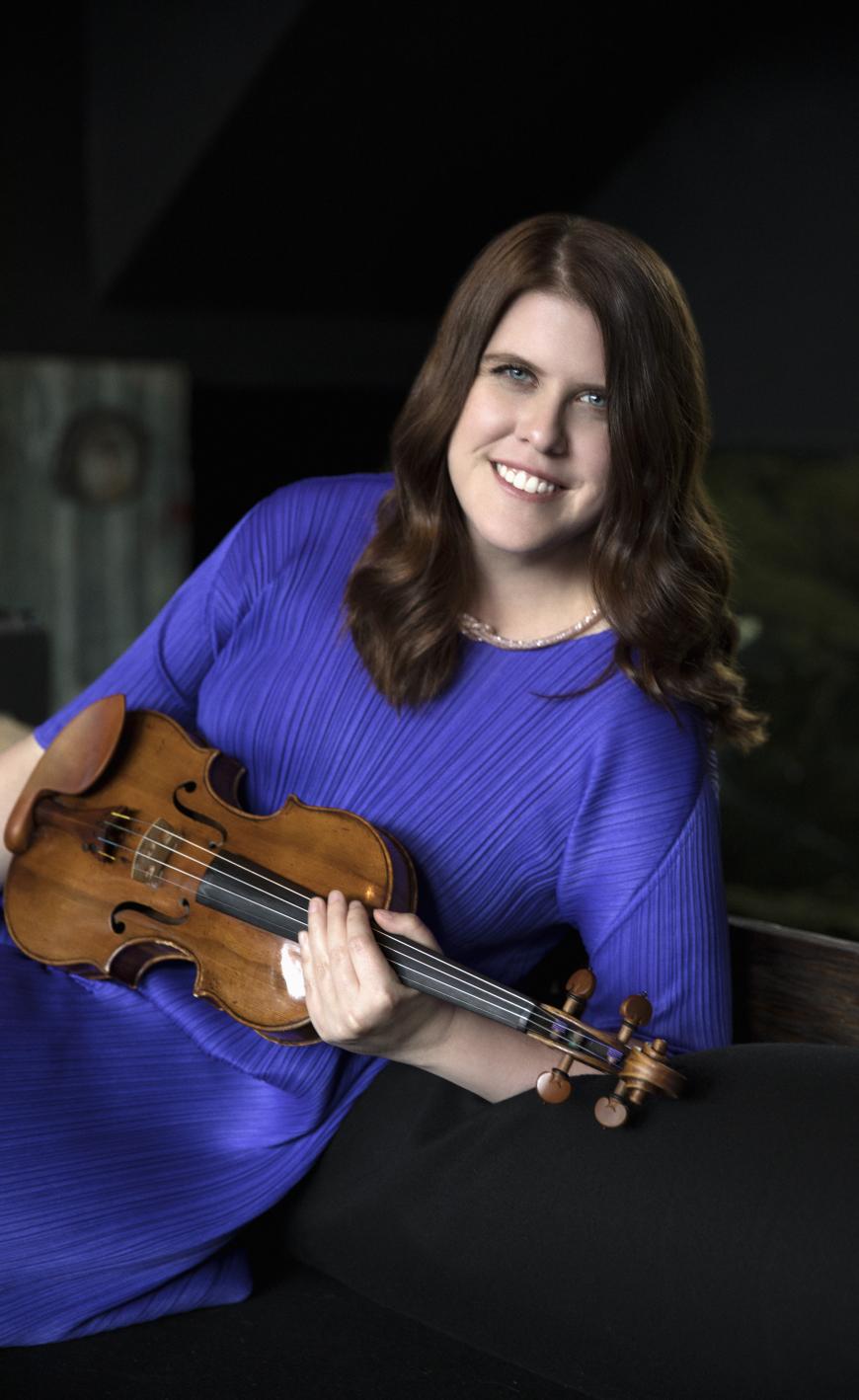
You then went to Juilliard for your master’s degree.
Yes, and my second year there, I was accepted into the Chamber Music Society of Lincoln Center’s junior program. I’ve actually known [CMS Artistic Directors] David Finckel and Wu Han since I was a kid. The Emerson Quartet [Finckel’s ensemble at the time] taught at Hartt.
That set you on a very successful career as a chamber musician. Why did you switch things up and accept the job as concertmaster of the Minnesota Orchestra?
I wanted a little more stability. I had a shoulder issue at one point and thought, “I have no health insurance and no job security. If I need surgery, what am I going to do?” I was at Music@Menlo, and Jorja Fleezanis, my predecessor in Minnesota, was there. She told me about the audition [for the job she was stepping down from]. I decided, “Why not?” I’m always open to giving things a try, and I’m so glad I did.
This was never in my game plan at all. I had never thought about being a concertmaster. But it turned out I have a leadership mentality. So the job utilizes a lot of my skills.
My trial was [a series of concerts featuring] Mahler’s Sixth Symphony. It’s a huge piece I had never played before. I remember looking around and listening [to my fellow players] about 90 percent of the time. Osmo was conducting, but I didn’t watch him much. Great orchestras don’t follow the stick; they play with themselves. That’s probably why I got the job: I was leading even while I was following.
How do you accomplish that in practical terms?
I was given a really good piece of advice by [Minnesota Orchestra] principal cellist Tony Ross during my trial week. He said, “You need to lead your section, but you also need to listen to them. Experienced leaders often play ahead.”
What did he mean?
An orchestra is a big group; there’s always going to be a bit of a lag between the front of the section and the back. So I’m constantly listening to what’s going on behind me. When I give a cue playing chamber music, I play with my beat. When I give an orchestral cue, I play after my beat. That’s a learned skill. I want my section to be together; I don’t want to play ahead of them. Great conductors can show things without talking, and that’s my job as well.
La Jolla Music Society’s SummerFest will take place July 28–Aug. 26 at the Conrad Prebys Performing Arts Center. Other participants this summer include conductor Alan Gilbert, composer-in-residence Thomas Adès, and the Louis Cato Trio. For more information, go to The Conrad’s SummerFest webpage.




